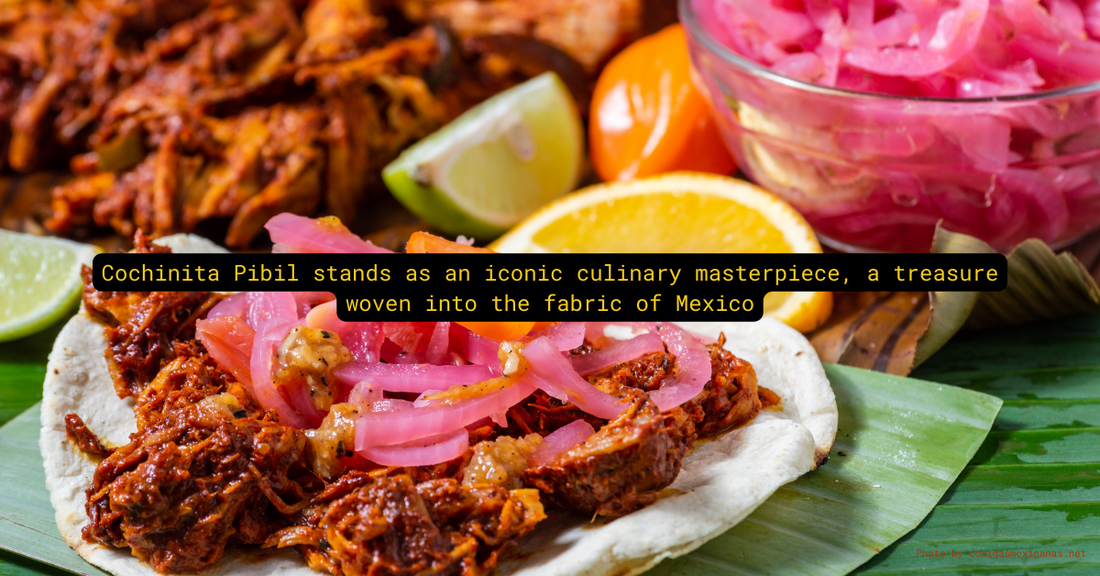I have fond memories of watching my mum work her magic with Cochinita Pibil in our kitchen. The unmistakable aroma of achiote lingering in the air, her fingers stained red from crumbling the spice paste. I can still picture her tossing garlic, onions, and orange juice into the blender, creating a vibrant orangey-red marinade that would lovingly coat the pork. The ritual of letting it swim in that fragrant concoction overnight, only to have the pressure cooker work its magic the next day, resulting in the most succulent, tender pulled pork.
Cochinita Pibil wasn't just a dish; it was a staple for entertaining. I reminisce about countless kids' parties where taquitos de cochinita took center stage – small tortillas for small hands, generously topped with bright pink pickled onions.
Tortas de cochinita, those delectable pork toasties, were the undisputed favorites at La Chivaloca, the school canteen, where my mum and I created a morning assembly line. We'd rise early, secure fresh rolls from our beloved bakery, and craft those irresistible tortas. I vividly recall my niece's special order – a torta with refried beans, pork, cheese, mum's mayo sauce, and a couple of cheeky pickled jalapeños.
Cochinita Pibil is more than a dish; it's a living memory that I carried with me to Australia. I find joy in devouring tacos de cochinita, mixing a bit into my morning scrambled eggs, creating layered dishes with potatoes, cochinita, cheese, and pickled onions, or even topping pizza and tortas. The possibilities are endless, and my love for it knows no bounds.
The roots of this iconic dish stretch back to the Yucatan peninsula, where the Maya people utilized achiote, annatto seeds, sour orange juice, salt, and banana leaves to cook various meats for Hanal Pixán, the day of the dead. Originally prepared in an earth oven called Pib, the term Pibil signifies cooking in the Pib.
With the arrival of Spanish conquistadores came a new meat option: pork, which swiftly became the star of the dish. The addition of garlic, onions, and spices resulted in the famous "recado rojo" marinade, widely embraced in Yucatan and beyond.
In Australia, where a Pib is out of the question due to bushfire concerns, I've adapted by using a slow cooker. To me, authentic Mexican food demands time – time to marinate the meat to perfection and time to let the flavours flourish through slow cooking.
For those eager to experience the magic of my Cochinita Pibil, I recommend our taco kit – a complete journey to the flavours of Yucatan. If you're up for unraveling the secrets of recado rojo, join our Cochinita Pibil cooking class. Whichever path you choose, you're in for an authentic Mexican culinary adventure in the cozy embrace of your home. ¡Buen provecho!

